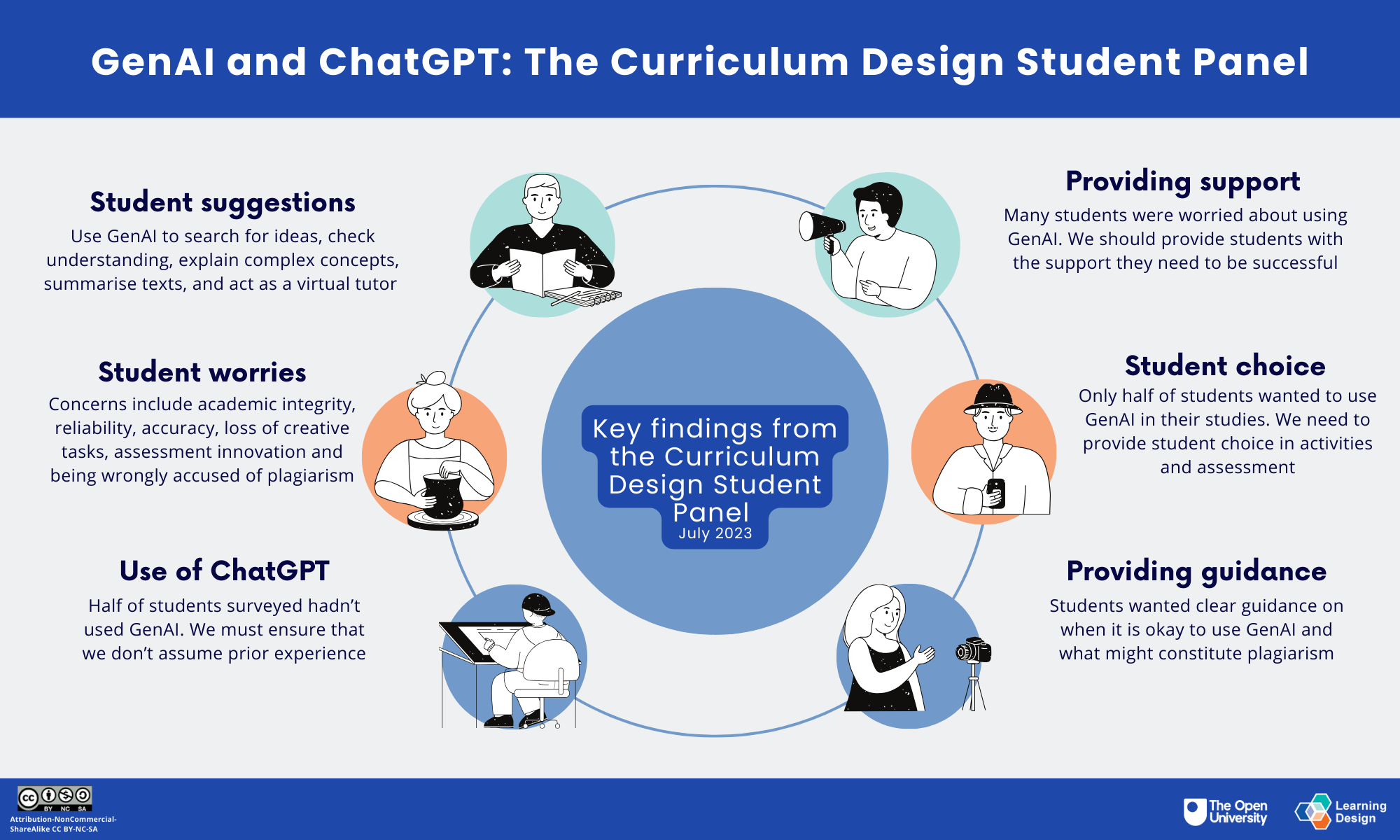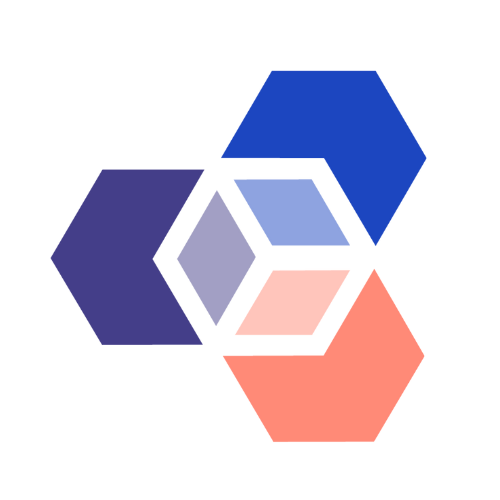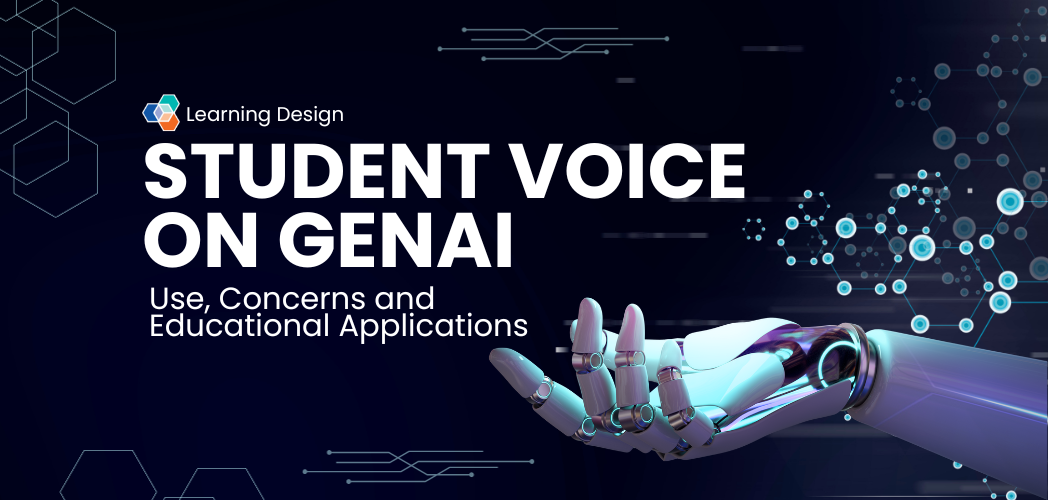Mary Simper and Eleanor Moore ~ Learning Designers
Like much of Higher Education, we in the Learning Design Team at The Open University have been both fascinated and challenged by the introduction of Generative Artificial Intelligence (GenAI) tools like ChatGPT.
In this blog post, we’ll uncover what our students have told us about their use of GenAI, what concerns they have, and what ideas they have about using GenAI in an educationally valuable way.

What is the Curriculum Design Student Panel?
The Curriculum Design Student Panel (CDSP) is made up of student volunteers who take part in activities, surveys and discussions throughout the academic year. Their voice is fed into the work that we do in Learning Design, whether it be to evaluate a specific activity for a module or take part in a discussion around a topic. Student voice is vital in informing the guidance that we provide for our module teams and academics, and we really appreciate the help they contribute to shaping the curriculum.
Rationale
GenAI has disrupted Higher Education (HE), and with debates swirling around academic integrity, plagiarism, and the impact on assessment, we thought it high time we consulted with those who will be impacted by all this change – the students!
Main themes: use, concerns, and applications
To get the conversation going, we asked our students a series of questions about GenAI (specifically Large Language Models like ChatGPT). These questions where framed by the following themes:
-
-
- Student use of GenAI tools
- Student concerns about GenAI
- Whether students would be willing to use GenAI as part of their module-directed studies
-
We had a lot of really interesting responses, which we’ll share with you now!
Student use of ChatGPT
As of July 2023, just over half of the students surveyed had experimented with ChatGPT in some capacity, with work being cited as the most common context of use. Just under half had not used ChatGPT in any capacity. This highlights that we must not assume students’ prior knowledge when it comes to technology.
‘I haven’t used Chat GPT. I had a try at the Bing offer, got into an argument with it and gave up.’
Student Concerns
The vast majority (94%) of students had concerns about the use of GenAI, with over half citing academic integrity, reliability and accuracy as concerns.
Some students were worried about overreliance on the tool, as well as the loss of creative tasks.
‘Growing too dependent on such technologies can hinder critical thinking.’
‘The way people have become so quickly and overly reliant on ChatGPT to guide their writing has me worried that people will become so reliant on it they’ll have trouble writing from scratch themselves.’
Interestingly, some students were worried about the impact on assessment. With HE scrambling to ‘AI-proof’ assessment, students were concerned their essay-writing skills would quickly become redundant in favour of new formats.
‘I’m worried that as GenAI tech improves and it becomes increasingly difficult to tell if an assignment is AI-generated, assessment will have to change, and these new types of assessments may be less accessible to me as a disabled student.’
Finally, students were worried about plagiarism, specifically about what to do if they are wrongly accused.
‘It worries me that it is getting increasingly difficult to know what is true, what has been done by an actual person and how can we protect our work and defend ourselves if accused of using AI.’
Interestingly, these concerns are very similar to our own. As educators and , we should provide students with the support they need to achieve success.
Opportunities for student use
Nearly half of the students surveyed said they’d be willing to experiment with ChatGPT. Crucially, they wanted to see policies and procedures in place and have an opportunity to learn how to use GenAI tools responsibly.
‘Understanding the affordances and limitations of ChatGPT and fully recognising the ethical implications behind using it would be a first step. Having practical hands on (and guided) practice a possible sequel.’
Nevertheless, 24% of students expressed misgivings about using GenAI in their studies, mainly due to issues around reliability and the need for fact-checking.
When asked about specific educational applications of GenAI, responses fell into four main categories:
Searching for inspiration: one student noted how they’d seen posts from academics explaining how the process of reading GenAI output and correcting its mistakes has given them inspiration for their own work.
‘I might try something similar next time I feel stuck on an essay.’
Checking understanding: testing understanding of complex concepts and exploring different ways to express an argument are seen as valuable uses of GenAI.
Using as a virtual tutor: having access to an out-of-hours tutor was seen as a potential useful avenue to explore, as well as providing more general support.
‘I can see how this could be useful as a tool during study, a support and self-evaluation aid.’
Explaining complex concepts or summarising content: students mentioned how GenAI could be helpful in summarising long or difficult texts which could be beneficial in having a new or different perspective on material and making it more accessible.
Recommendations
This student panel activity has provided us with some evidence-based points to carry forward for future actions. These include but are not limited to the following:
-
-
- Ensure appropriate scaffolding is in place for student use of GenAI
- Allow students to feel safe when using GenAI within the parameters of institutional guidance.
- Actively teach critical evaluation of GenAI output.
- Make users aware of ethical issues and risks such as misinformation and bias.
- Consider the appropriateness of GenAI in context; treat it as a tool.
- Provide student choice in activities to allow opt-out, particularly for assessments.
-
Summing up
Here at The OU, there are many groups working on AI initiatives and the findings from this activity are being shared to raise awareness about the student perspective. It is undoubtedly a challenge to keep up with the fast-moving and disruptive pace of change presented by the biggest tech revolution since the advent of the internet. It will be important for HE institutions to provide guidance on the use of GenAI through institutional policies. In the Learning Design team, we’re using the above recommendations to inform our work in advising module teams on aspects of content creation.
We hope this student panel evaluation has provided you with some interesting findings that will be helpful as we’re all grappling with the implications of GenAI in HE. We’re continuing to integrate student voice into the work we’re developing on AI and we’ll be sure to share future findings with you. Watch this space!
Banner image: Mary Simper / Canva

